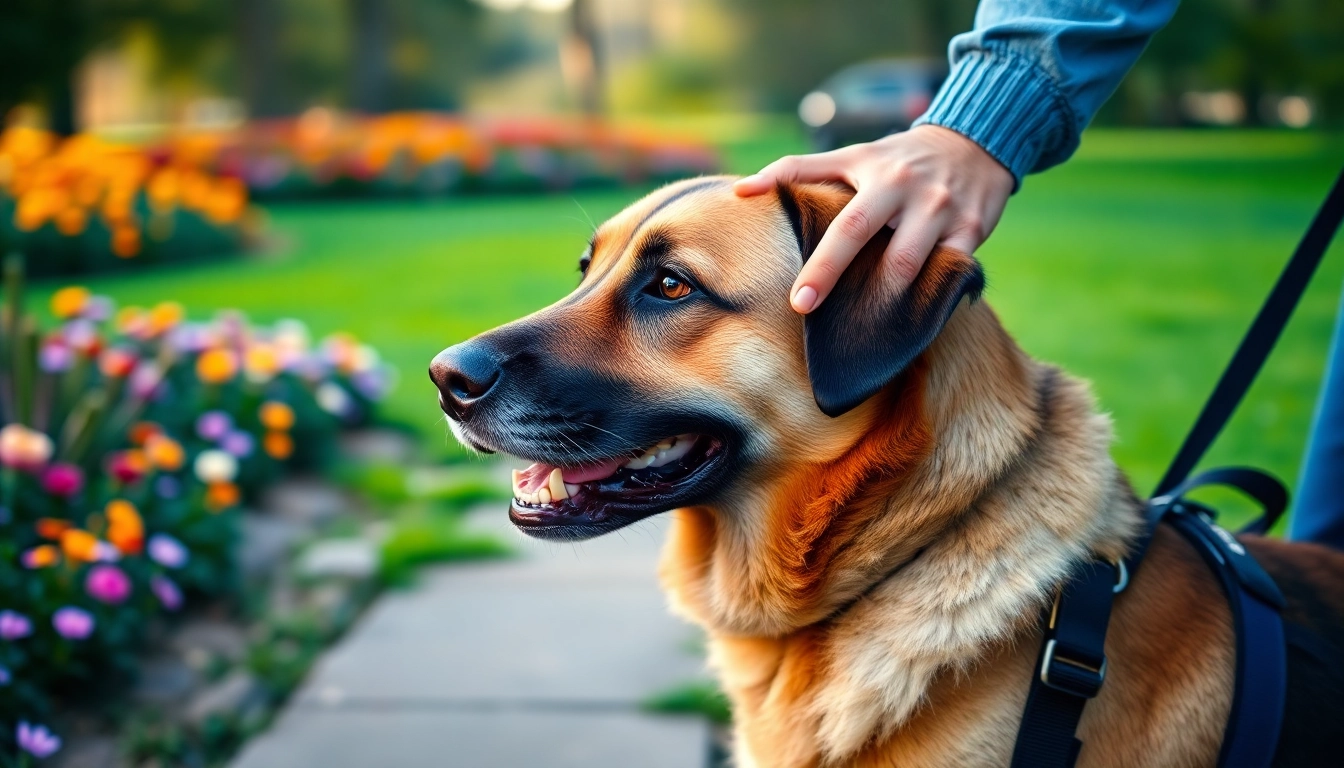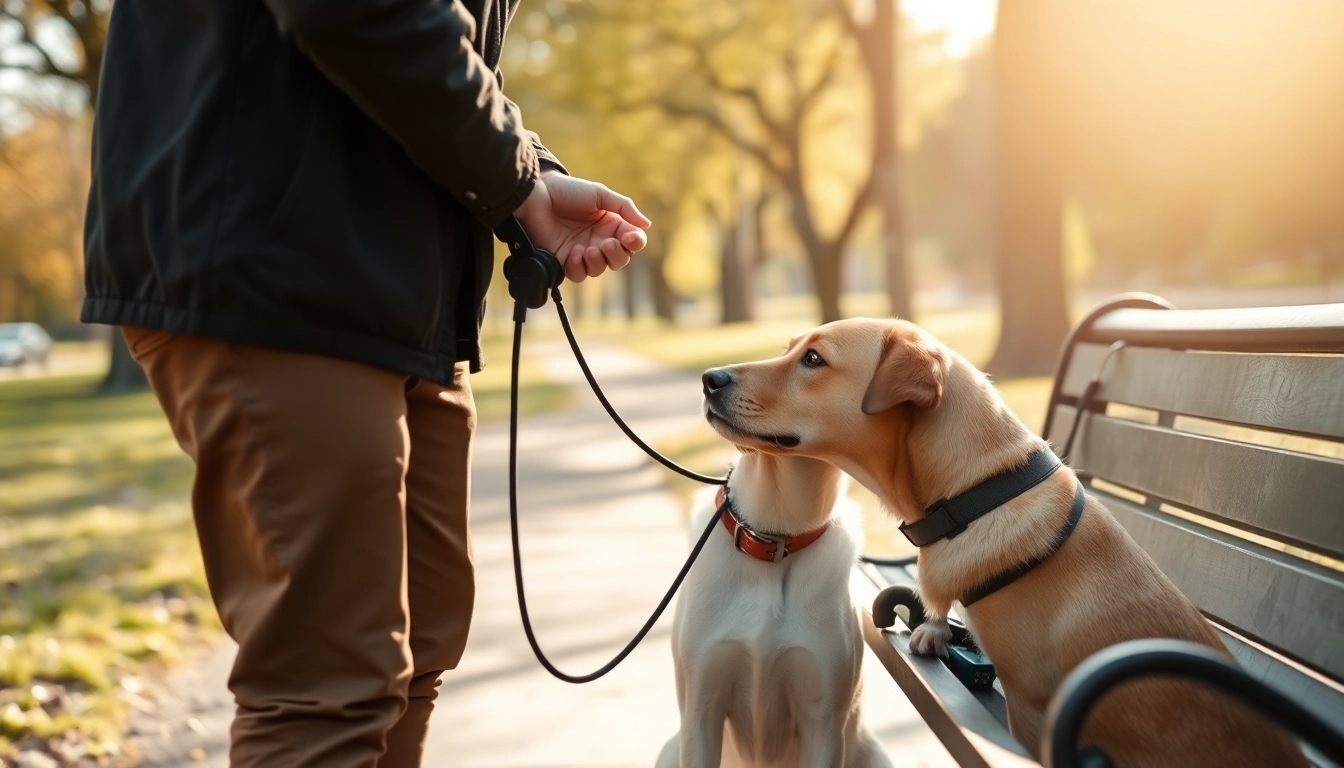Understanding Service Dogs for Sale
What Are Service Dogs?
Service dogs are specially trained canines that assist individuals with disabilities. They are not merely pets; they are working animals who perform specific tasks to help their handlers achieve independence and improve their quality of life. Service dogs are recognized under the Americans with Disabilities Act (ADA), which grants them the right to accompany their handlers in public spaces, including restaurants, airports, and other establishments where pets are typically not permitted.
The tasks that service dogs perform can vary widely, depending on the needs of their handler. For example, a service dog may be trained to assist someone with mobility issues by fetching dropped items, opening doors, or providing balance support. Others may be trained to assist individuals with medical conditions, such as alerting their handlers to impending seizures or episodes of low blood sugar.
Types of Service Dogs Available
There are several classifications of service dogs, each with distinct training regimens tailored to specific disabilities. Some common types include:
- Mobility Assistance Dogs: These dogs help individuals with physical disabilities navigate daily tasks, including providing stability and support when walking.
- Medical Alert Dogs: Trained to detect medical emergencies such as seizures or diabetic highs/lows, these dogs can alert their handlers or others for help.
- Psychiatric Service Dogs: These dogs assist individuals suffering from mental health disorders by providing comfort, companionship, and mobility support, particularly in anxiety-provoking situations.
- Autism Service Dogs: Specially trained to help children and adults on the autism spectrum, these dogs can assist with social interactions and provide safety by preventing wandering.
- Hearing Dogs: These dogs are trained to alert owners who are deaf or hard of hearing to important sounds, such as a doorbell or alarm.
Key Benefits of Owning a Service Dog
Owning a service dog can offer numerous benefits, transforming the lives of individuals with disabilities. Some of the critical advantages include:
- Increased Independence: Service dogs enable their handlers to perform tasks that may be challenging or impossible to accomplish alone, fostering a greater sense of freedom and autonomy.
- Enhanced Safety: With a service dog by their side, handlers often feel more secure and confident in public settings, reducing anxiety and fear.
- Emotional Support: The companionship provided by service dogs can significantly reduce feelings of loneliness and depression, promoting mental well-being.
- Social Interaction: Service dogs can serve as a social bridge, encouraging interactions with others and promoting a sense of community.
How to Select Service Dogs for Sale
Assessing Your Needs and Preferences
Choosing the right service dog is a deeply personal decision that should begin with a thorough assessment of your specific needs. Individuals should consider their daily routines, the tasks they require assistance with, and the type of environment where the dog will live and work. For instance, a physically active person may benefit from a highly energetic dog, while someone with a quieter lifestyle may prefer a more relaxed breed.
It can be helpful to create a list of the tasks you need assistance with. This list serves as a guide to both the type of service dog needed and the specific skills that should be prioritized in training.
Evaluating Training Levels and Specializations
When looking for service dogs for sale, you will encounter various training levels and specializations. It’s essential to determine whether you want a dog that is already fully trained or one that requires further training. Fully trained dogs are more expensive but come ready to assist their handlers immediately, while a partially trained dog may be more affordable but will require additional investment in training.
Additionally, consider the specific tasks you require. Not all service dogs are trained to perform every task, so make sure to choose one that aligns with your needs. Reputable service dog organizations provide detailed profiles of their dogs, including training levels and any specialties.
Understanding Breed Characteristics
Each dog breed has unique characteristics, temperaments, and energy levels, all of which should be considered in the selection process. For instance, Labrador Retrievers and Golden Retrievers are popular choices for service dogs due to their friendly demeanor and trainability.
Conversely, breeds like the Belgian Malinois are known for their high energy and intelligence, making them suitable for more active handlers. Understanding these characteristics will help ensure that you select a dog that fits well into your lifestyle and meets your service needs.
Purchasing and Training Process for Service Dogs
Steps to Acquire a Service Dog
The process of acquiring a service dog typically involves several key steps:
- Research: Begin by researching reputable organizations that train and place service dogs. Look for reviews and testimonials from previous clients.
- Application: Once you identify a suitable organization, complete their application process, which often includes documenting your specific needs and disability.
- Meet and Greet: If your application is approved, you’ll usually be invited for a meet-and-greet with available dogs to assess compatibility.
- Training: Following a successful match, you will engage in training sessions with your new service dog to learn how to work together effectively.
- Follow-Up: Many organizations provide ongoing support and follow-up services to ensure the continued success of the partnership.
Essential Training for Service Dogs
The training of service dogs is critical to their effectiveness. Training can last anywhere from several months to over two years, depending on the dog’s readiness and the tasks they will perform. Essential training components include:
- Basic Obedience: Dogs must learn basic commands such as sit, stay, come, and heel.
- Task-Specific Training: This involves teaching the dog to perform the tasks required by their handler, such as alerting to medical conditions or providing physical support.
- Socialization: Dogs should be socialized in various environments and situations to reduce anxiety and adapt to public settings.
- Public Access Training: Training in public environments is essential to ensure the dog behaves appropriately in all settings, including crowded areas and around distractions.
Post-Purchase Support and Resources
Once you have acquired a service dog, ongoing support is paramount for both the dog and the handler. Many organizations offer post-purchase resources such as:
- Training Refresher Courses: Additional training sessions can help reinforce the bond and skills between you and your service dog.
- Handler Support Groups: Connecting with other service dog owners can provide emotional support and share experiences.
- Crisis Intervention: In the event of a training or behavioral issue, having access to a professional trainer is beneficial.
Legal Considerations Surrounding Service Dogs for Sale
Understanding the ADA Regulations
The Americans with Disabilities Act (ADA) outlines the rights of service dog handlers and defines what constitutes a service dog. Under the ADA, service dogs are defined as dogs that are individually trained to perform tasks for individuals with disabilities.
It’s vital for potential handlers to understand their legal rights to ensure they are respected in public spaces. Businesses are required to allow service dogs in areas where the public is permitted, and they cannot request documentation or ask about the handler’s disability.
Service Dog Certification and Identification
While many people may seek certification for their service dog, it is essential to understand that no official certification is required under the ADA. However, some organizations offer voluntary identification and certification, which may help in situations where questions about the dog’s status arise.
Handlers often carry a vest or ID card to signify that their dog is a service dog, but it’s important to know that such identification is not legally mandated and cannot be used to deny access to public spaces.
Rights and Responsibilities of Service Dog Handlers
Service dog handlers have both rights and responsibilities that come with having a service dog. While they are entitled to full access in public spaces, they must also:
- Ensure their service dog is well-behaved and under control at all times.
- Clean up after their dog and handle any behavioral issues responsibly.
- Cooperate with businesses, which may ask if the dog is required due to a disability and what tasks the dog has been trained to perform.
Real-life Stories of Service Dogs in Action
Transformative Experiences of Handlers
Many service dog handlers have experienced profound changes in their lives after acquiring a service dog. For example, individuals with PTSD often recount how their dogs act as a calming presence, allowing them to navigate public spaces with more ease and less anxiety. Others, dealing with mobility challenges, speak of their newfound independence as their dog assists with daily tasks, enabling them to live more fulfilling lives.
Community Support for Service Dog Owners
Support from the community is essential for service dog owners. Many organizations provide resources and networks that help individuals connect with one another, share advice, and form friendships. Some communities host events specifically for service dog handlers, including training sessions and social gatherings where handlers can learn from one another and share experiences.
Future Trends in Service Dog Training and Placement
As awareness of the benefits of service dogs grows, we see evolving trends in training methodologies and the types of tasks dogs are trained to perform. With advances in technology, innovative tools such as apps for training guidance and behavioral tracking are becoming increasingly popular. Furthermore, specialized programs are emerging that cater to unique disabilities beyond traditional training.
Overall, the journey of finding the right service dogs for sale can profoundly positively impact an individual’s life. It’s crucial to approach this process thoughtfully, considering various factors that align with one’s lifestyle and specific needs.















Leave a Reply